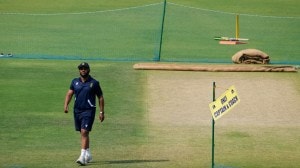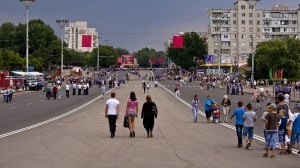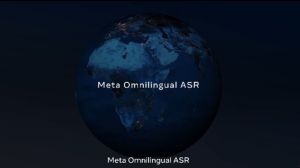Click here to follow Screen Digital on YouTube and stay updated with the latest from the world of cinema.
Girls Gone Wild
Gone Girl and Wild, two of the most talked about movies this year are both based on books by authors whose characters defy every gender stereotype in the book. Gillian Flynn and Cheryl Strayed say it’s time literature dealt with the anti-heroine
 Gillian Flynn and Cheryl Strayed
Gillian Flynn and Cheryl Strayed
By Cara Buckley/NYT
The pairing of Gillian Flynn and Cheryl Strayed seems at once too obvious and not obvious enough. Obvious because both are women writers who happen to have had best-selling books optioned by Reese Witherspoon and made into high-octane, swinging-for-the-fences films. And not obvious enough because Flynn specialises in probing dark, unsavoury recesses of the human psyche, like her anti-heroine Amy in the 2012 novel Gone Girl. Strayed rocketed to fame the same year with her memoir Wild, about her redemptive 1,100-mile trek along the Pacific Crest Trail as a brokenhearted divorced 26-year-old grieving the early death of her mother.
Yet the authors share similarities that run deep. Feminists both, they create bluntly authentic, deeply engaging stories through characters that defy stereotypes. They have also forged roads to Hollywood gold. Directed by David Fincher and adapted by Flynn herself, the film Gone Girl has earned more than $300 million globally. Wild, directed by Jean-Marc Vallee and starring Witherspoon, is one of the season’s most anticipated films. Flynn, 43, has a newborn, her second child, and lives with her family in Chicago while Strayed, 46, happens to be in town with her husband and two children. Excerpts from their conversation.
Witherspoon wanted to create better roles for women, but has Gone Girl shown women in a better role? Is it empowering or reinforcing stereotypes?
GF: I’ve been asked that a lot, and to me the answer is always: ‘Of course, it’s not misogynistic.’ Women shouldn’t be expected to only play nurturing, kind caretakers. That’s always been part of my goal — to show the dark side of women. Men write about bad men all the time, and they’re called anti-heroes. I had about 24 hours where I hovered under my covers and felt ‘I killed feminism. Why did I do that? Rats! I did not mean to do that’. Then I was suddenly comfortable with what I had written.
Cheryl, it’s your story, but did you get blowback from people, or was it just more relief at having told an honest story?
CS: One of the most difficult things reading about the movie Wild was when people started writing about it and me, saying my problems were self-inflicted. Really the two biggest problems I began the trail with were the opposite of self-inflicted: the dead mother and the abusive father who wasn’t in my life. Those were my two most significant wounds, neither of which I inflicted upon myself, both of which I had to heal myself.
Is there a double standard as male characters aren’t scrutinised as much?
GF: Likability, especially in Hollywood, constant conversation. What I read and what I go to the movies for is not to find a best friend, not to find inspirations, not necessarily for a hero’s journey—It’s to be involved with characters that maybe incredibly different from me, that may be incredibly bad, but who feel authentic.
When you were writing the books, did you think, ‘I’m breaking the mould and pushing the edges of these women characters’?
GF: A theme that has always interested me is how women express anger, how they behave violently. That is very much a part of who women are, and it’s largely remained unaddressed. A vast amount of literature deals with cycles of violence about men and anti-heroes, but women lack that vocabulary.
CS: The story I wrote has an ancient tradition in literature, man against nature, the hero’s journey. I say the wild felt like home to me. It wasn’t me trying to conquer it; it was me living in it. So much about Wild is about acceptance, surrender and vulnerability. To me, that’s the greatest strength, not this conquering kind of narrative that we have embedded in our bones.
Gillian, is Gone Girl the movie being talked about as a feminist film or an anti-feminist film?
GF: To me, it’s neither. It’s about two specific people who are battling and who happen to be a man and a woman. I certainly enjoyed playing with those gender roles. Amy is certainly a character who understands every single female stereotype and uses it. So when people say she’s embodying awful stereotypes about women, I say, ‘Yes, exactly, and that’s kind of the point’.
CS: I was so mindful that I had not written a book for women. I think the death of us would be if our films, or our books were interpreted in this kind of ‘You go, girl’ thing. I think the last frontier for women is to say we are fully human, which means that our stories are as relevant to men as they are to women.
GF: I would love it if I could do an event without a very well-meaning man telling me, ‘I don’t normally read books by women’. Do you get that, Cheryl?
CS: All the time. One of the first experiences I had when Wildreleased was this male radio host who interviewed me, and right before we went live, he said, ‘I picked your book up and I couldn’t stop’ then when we went live and he said, ‘Cheryl Strayed has written a great book for women’.


- 01
- 02
- 03
- 04
- 05
































